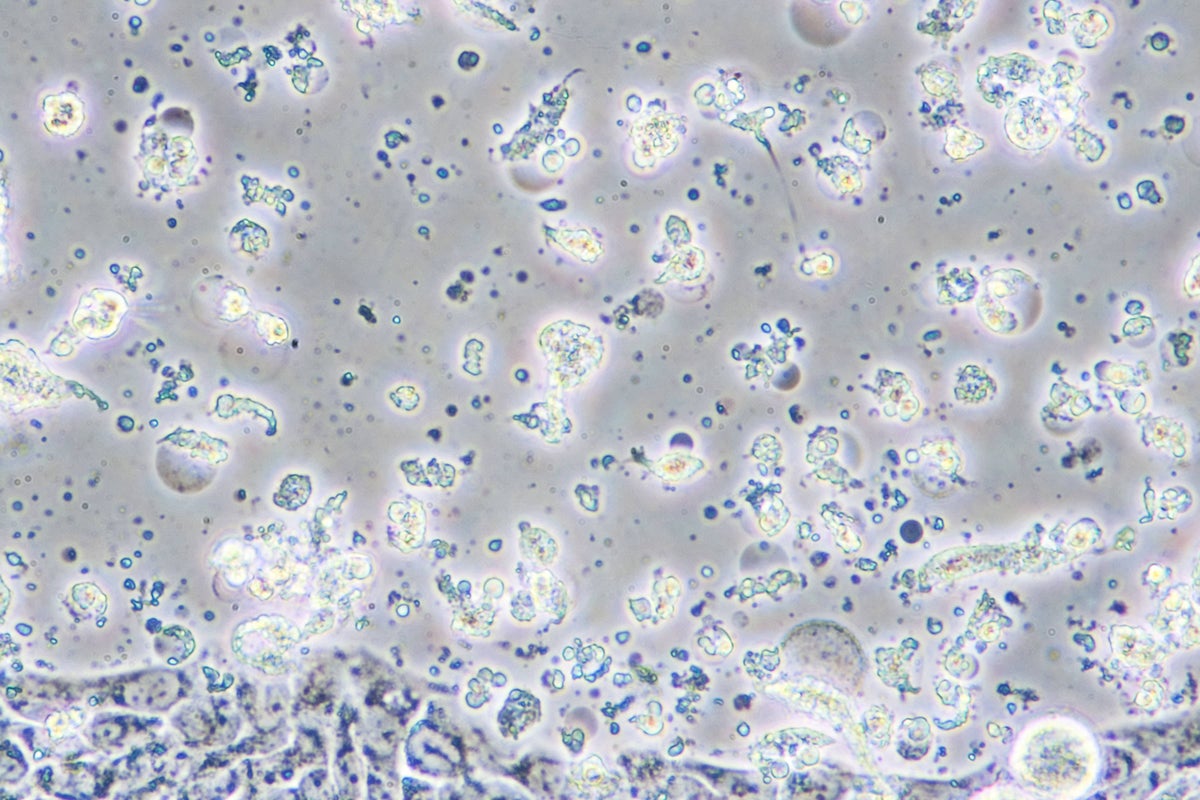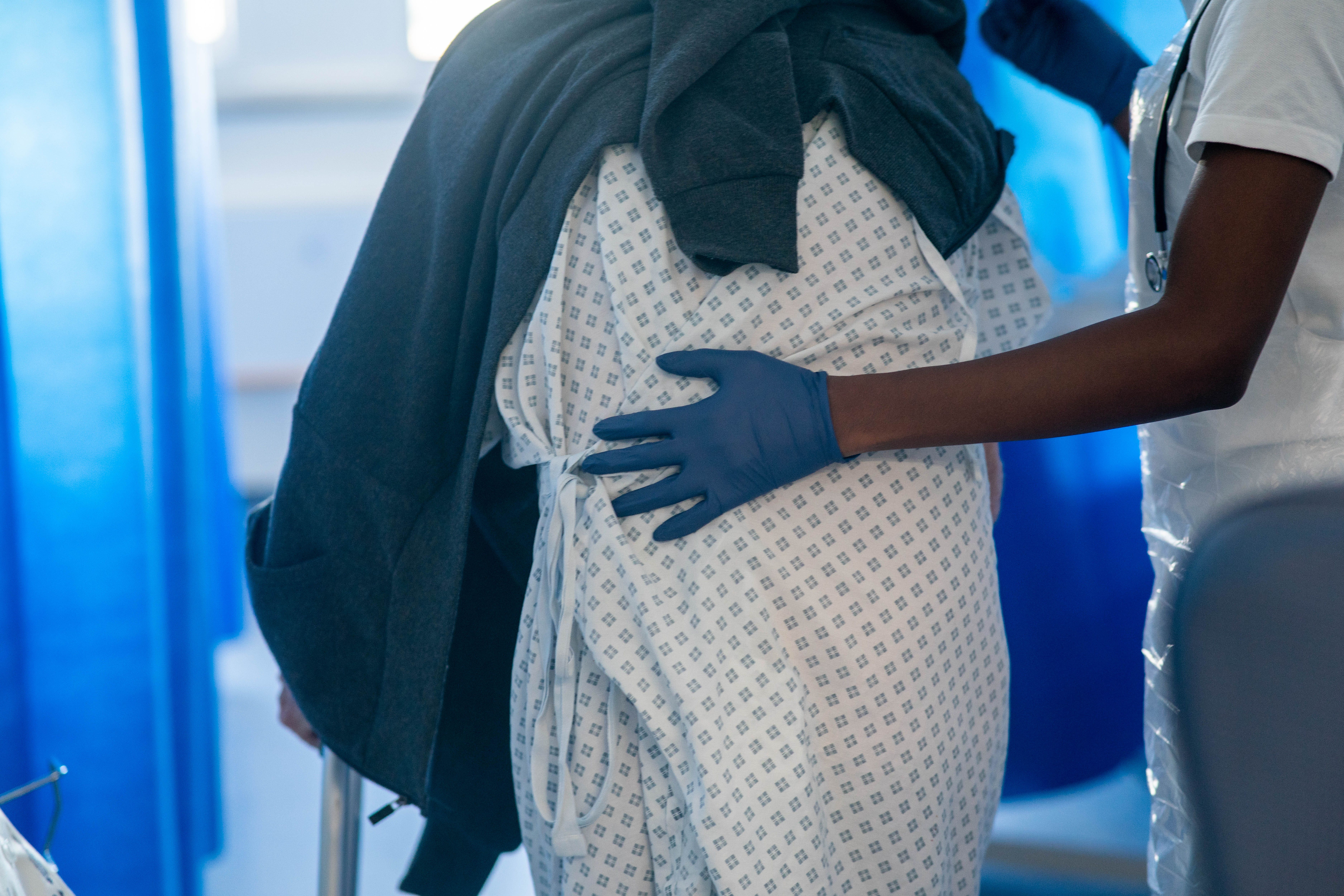
Scientists have discovered a potential link between a toxin produced by E. coli and the rising rates of bowel cancer in young people.
This discovery may shed light on why these rates are increasing globally.
The toxin, known as colibactin, has the ability to alter DNA. It's produced by a specific strain of E. coli, distinct from the strains associated with infections like diarrhoea. This finding offers a new avenue for understanding and potentially addressing the concerning trend of bowel cancer in younger demographics.
Researchers, including from the UK and backed by Cancer Research UK, found that exposure to colibactin in early childhood imprints a genetic signature on the DNA of bowel cells, which may then increase the risk of developing bowel cancer before the age of 50.
A previous study published in December found rates of bowel cancer in young people are rising more sharply in England than in many other countries around the world.
For those aged 25 to 49, England is among the countries with the biggest rise, averaging a 3.6% increase every year in the decade up to 2017.
Data provided by Cancer Research UK up to 2019 further suggests that bowel cancer has seen a 52% increase in incidence rates for adults aged 25 to 49 since the early 1990s.

There are around 2,600 new bowel cancer cases in people aged 25-49 in the UK every year and around 44,100 new cases among all ages.
Work has been ongoing to discover why more younger people are developing bowel cancer, with experts believing poor diet, more ultra-processed foods, obesity and a lack of exercise are playing a role.
Now in the latest study, led by the University of California San Diego (UCSD) and published in the journal Nature, researchers have uncovered another possible culprit.
Experts examined 981 colorectal (bowel) cancer genomes from patients with both early and late-onset disease in 11 different countries.
They found colibactin can leave behind specific patterns of DNA mutations that are 3.3 times more common in early-onset bowel cancer cases (in the study this was adults under 40) than in those diagnosed after the age of 70.
These mutation patterns were also particularly common in countries with a higher rate of early-onset bowel cancer.
Symptoms of bowel cancer
According to The NHS
Symptoms of bowel cancer may include:
- changes in your poo, such as having softer poo, diarrhoea or constipation that is not usual for you
- needing to poo more or less often than usual for you
- blood in your poo, which may look red or black
- bleeding from your bottom
- often feeling like you need to poo, even if you've just been to the toilet
- tummy pain
- a lump in your tummy
- bloating
- losing weight without trying
- feeling very tired for no reason
Bowel cancer can cause anaemia (when you have fewer red blood cells than usual), which can make you feel very tired, short of breath and have headaches.
Senior author, Ludmil Alexandrov, a professor at UCSD, said: “These mutation patterns are a kind of historical record in the genome, and they point to early-life exposure to colibactin as a driving force behind early-onset disease.”
Study first author Marcos Diaz-Gay, a former postdoctoral researcher, said: “When we started this project, we weren’t planning to focus on early-onset colorectal cancer.
“Our original goal was to examine global patterns of colorectal cancer to understand why some countries have much higher rates than others.
“But as we dug into the data, one of the most interesting and striking findings was how frequently colibactin-related mutations appeared in the early-onset cases.”
The study also found that colibactin-related mutations account for around 15% of what are known as APC driver mutations – some of the earliest genetic alterations that directly promote cancer development – in bowel cancer.
“If someone acquires one of these driver mutations by the time they’re 10 years old, they could be decades ahead of schedule for developing colorectal cancer, getting it at age 40 instead of 60,” Professor Alexandrov said.
The work is part of Cancer Grand Challenges team Mutographs, funded by Cancer Research UK.
Researchers are now developing early detection tests that analyse stool samples for colibactin-related mutations.
The director of Cancer Grand Challenges, Dr David Scott, said: “Globally and in the UK, we’re witnessing an alarming increase in some types of cancer in people under the age of 50.
“It is unlikely that there will be one clear driver but Cancer Grand Challenges scientists are racing to solve this puzzle, and our Mutographs team has uncovered a surprising clue.
“Many early-onset colorectal cancer patients appear to have been exposed to a toxin, called colibactin, produced by some strains of the bacteria E. coli in early life.
“It’s unclear how the exposure originates, but we suspect that a combination of factors – including diet – may intersect during a crucial phase in the development of the gut microbiome.
“This study adds an important piece to the puzzle of early-onset cancers, but it isn’t conclusive, and more research will be needed to establish a definitive link between colibactin and an increased risk of early-onset colorectal cancer.
“Other Cancer Grand Challenges teams, like Optimisticc and Prospect, are looking deeper into the microbiome and other environmental factors to uncover what’s behind the global rise.”
Toxin produced by E. coli ‘could be driving bowel cancer rates in young people’
New blood test trial offers ‘exciting new era in cancer detection’
One of UK’s most prescribed drugs could reduce death rate of common blood cancer
What is Type 5 diabetes? New form of disease recognised after decades of debate
This simple daily activity may help you live longer and aid your heart
‘Gamechanger’ discovery in preventing the most common form of birth defect







